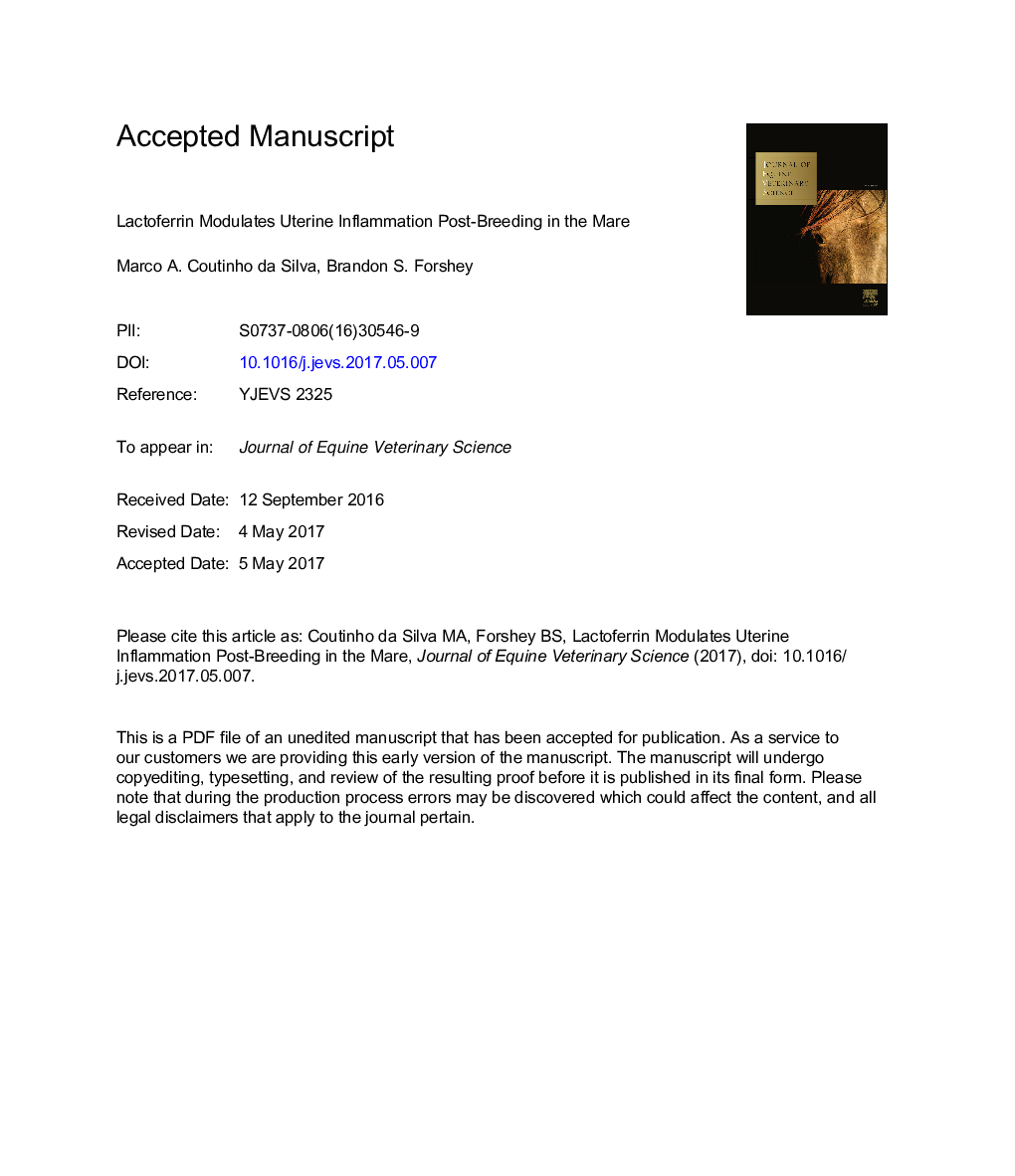| Article ID | Journal | Published Year | Pages | File Type |
|---|---|---|---|---|
| 5535411 | Journal of Equine Veterinary Science | 2017 | 14 Pages |
Abstract
Our objective was to determine the effects of lactoferrin (LF) on the postbreeding inflammatory process of the endometrium. Mares were randomly assigned to receive either the control treatment (semen only: 1.25 à 109 dead sperm diluted in skim milk-based extender) or LF (semen + 1 g LF) in a cross-over design. Mares received 2,500 IU of human chorionic gonadotropin at the time of insemination and were then evaluated daily to determine the time of ovulation and the amount of intrauterine fluid accumulation (0 = none; 4 = large). Endometrial samples were collected approximately at 24 hours postinsemination. The amount of bacterial growth was given a score (0 = no growth; 4 = heavy growth), and the percentage of white blood cells (WBCs) in the smear was determined. Endometrial expression of IL-1β, IL-6, IL-8, IL-10, and TNF-α was determined by real-time polymerase chain reaction. There were no significant differences between control and LF groups for: intrauterine fluid 24 hours after artificial insemination (2.2 vs. 1.7), bacterial growth (1.2 vs. 0.8), and percentage of WBCs (37.3 vs. 21.0%). Mares inseminated with extender containing LF showed reduction in endometrial expression of IL-6 at 24 hours postinsemination compared to control treatment (P < .05). Results also showed a tendency of reduction in the expression of IL-1β (P = .09), IL-8 (P = .06), and TNF-α (P = .08) when compared to controls. Expression of IL-10 was similar between groups. Overall, the postbreeding inflammatory reaction in the uterus of mare's receiving LF was milder than in control mares.
Related Topics
Life Sciences
Agricultural and Biological Sciences
Animal Science and Zoology
Authors
Marco A. Coutinho da Silva, Christa R. Darr, Luis E. Moraes, Brandon S. Forshey,
